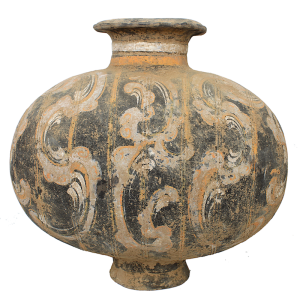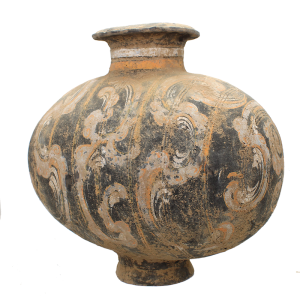Antique/Vintage Taoist Priest with Elixir of Life, China (7506PHE) $215
$215.00Images of Taoist priests were often placed on a home altar along with other spiritual images, ancestral tablets and ancestor figures to honor the departed family members, practice familial piety and ancestor-worship, and request good fortune to the family dwelling and its household. Priests were called daoshi (道士 “master of the Tao”) identified by his…




